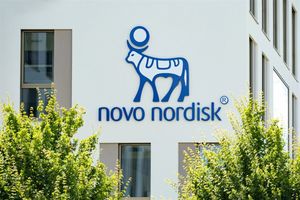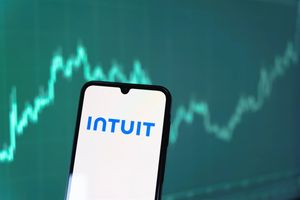
SALEM, IN – November 19, 2025 – First Capital, Inc. (NASDAQ: FCAP), the parent company of First Harrison Bank, today announced a quarterly cash dividend of $0.31 per share of common stock. This declaration, payable on December 26, 2025, to shareholders of record as of December 12, 2025, extends the company's impressive 27-year streak of consecutive dividend payments and reflects a 6.9% increase over the last twelve months. The move signals robust financial health and a steadfast commitment to returning value to its shareholders, resonating positively within a regional banking sector experiencing a renewed sense of optimism.
This latest dividend follows a similar declaration on August 20, 2025, for the same $0.31 per share, which was paid on September 26, 2025, to shareholders of record as of September 12, 2025. The consistent increase underscores First Capital's strong performance and confidence in its future, providing a stable income stream for investors and reinforcing the company's position as a reliable entity in the financial markets.
Detailed Coverage: A Dividend Strategy Built on Strength
First Capital, Inc.'s recent dividend declaration is not an isolated event but rather a continuation of a well-established strategy rooted in consistent financial performance. The company has maintained an "impressive 27-year streak of consecutive dividend payments," with an average annual increase of 3.3% over the past decade, culminating in a 6.9% growth in its dividend over the last twelve months. This historical trend highlights a management philosophy that prioritizes shareholder returns through various economic cycles.
The decision to declare a $0.31 per share dividend is underpinned by exceptional financial results. For the quarter ended September 30, 2025, First Capital, Inc. reported record net income of $4.5 million, or $1.34 per diluted share, a significant jump from $2.9 million, or $0.87 per diluted share, in the same period of 2024. This growth was driven by increased net interest income, a rise in interest income due to an elevated average tax-equivalent yield on interest-earning assets, and a reduction in interest expense. Furthermore, the company's tax-equivalent net interest margin improved from 3.19% to 3.71%, and noninterest income saw a notable increase, partly from gains on equity securities and loan sales. The provision for credit losses also decreased, reflecting improved asset quality.
Initial market reactions to the August dividend increase were largely positive, with analysts like Simply Wall St (in a September 8, 2025 report) identifying First Capital as a "promising dividend stock" due to its consistent earnings per share growth and sustainable payout ratio of a modest 29% of its profit. While the most recent declaration on November 19, 2025, saw the stock trading down slightly by 1.4% on the day, this followed a 1.62% gain the previous day and positive insider sentiment due to several insider stock purchases. Overall, the market generally interprets these declarations as strong indicators of financial health and management's commitment to shareholder value.
Market Implications: Winners, Losers, and Competitive Dynamics
First Capital, Inc.'s consistent dividend policy, particularly its recent increase, creates a nuanced landscape of winners and losers within the financial market, impacting the company itself, its shareholders, and its regional banking competitors.
For First Capital, Inc. (NASDAQ: FCAP): The company stands to gain significantly from an enhanced reputation for financial strength and stability. A reliable dividend attracts income-focused investors, potentially increasing demand for its stock and providing a short-term boost to its share price. It also reinforces management's confidence in future performance. However, dividend payouts reduce retained earnings and cash reserves, limiting capital available for reinvestment in growth initiatives, debt reduction, or technological upgrades. While First Capital's payout ratio is sustainable, a high payout could sometimes signal a lack of internal investment opportunities, though this is not currently perceived as an issue for FCAP given its strong earnings.
For Shareholders: Investors in First Capital, Inc. are clear winners, receiving a steady and growing income stream. This is particularly appealing for retirees and long-term investors who can also reinvest dividends for compounding returns, mitigating market volatility. The consistent dividends serve as an assurance of the company's financial health. On the downside, dividend income is a taxable event, and a focus on dividends might lead to slower capital appreciation compared to companies that aggressively reinvest profits. While First Capital has a strong track record, the inherent risk of dividend cuts during unforeseen financial difficulties always exists.
For Competitors (Other Regional Banks): First Capital's strong dividend performance creates competitive pressure. Other regional banks, especially those operating in Indiana and Kentucky, might feel compelled to match or improve their own dividend payouts to attract and retain income-oriented investors. Banks with less robust financial fundamentals or inconsistent payout histories could face increased scrutiny and be perceived as less attractive. This could force competitors to re-evaluate their capital allocation strategies, balancing growth investments against shareholder returns, potentially putting a strain on those with weaker balance sheets. Conversely, First Capital's success can also be seen as a positive signal for the regional banking sector as a whole, boosting overall investor confidence in the stability and health of well-managed local financial institutions.
Wider Significance: Regional Banking Resilience and Regulatory Watch
The dividend declaration by First Capital, Inc. extends beyond a mere corporate announcement; it resonates within broader industry trends, reflects the resilience of regional banks, and implicitly interacts with the prevailing regulatory environment.
This event aligns with an increasingly optimistic outlook for U.S. regional banks in 2025. The sector is experiencing tailwinds from a steepening yield curve, which typically boosts net interest margins, and "green shoots" in loan activity, suggesting renewed borrowing demand. Furthermore, a potentially more lenient regulatory environment under a new U.S. presidential administration is seen as a positive catalyst. Concerns regarding commercial real estate exposure, a significant issue for regional banks, have largely proven manageable, with many institutions demonstrating robust earnings and effective absorption of losses throughout 2024. First Capital's impressive net profit margin of 31.2% and accelerating earnings growth of 25.1% in 2025 further solidify this positive narrative, underscoring operational strength within the sector.
The ripple effects of First Capital's dividend extend to heightened competitive pressure on other regional banks, particularly those in its operating regions. Its consistent and increasing payout sets a benchmark, urging competitors to maintain or enhance their own dividend policies to remain attractive to investors. This can also bolster investor confidence in the regional banking sector generally, especially in the wake of the regional banking turmoil of 2023 and early 2024, signaling that well-managed regional banks can navigate economic shifts. For business partners, the declaration signifies stability and reliability, potentially strengthening commercial relationships.
Bank dividend policies are under strict regulatory oversight. Regulators closely monitor payouts to ensure banks maintain adequate capital levels, with stronger capital ratios often signaling regulatory approval and financial soundness. Frameworks like the Maximum Distributable Amount (MDA) restrict dividends if capital falls below predefined levels. This ensures that payouts do not compromise a bank's resilience, particularly during economic downturns. Historically, banks exhibit "dividend stickiness," being reluctant to cut dividends due to the negative market signal it sends. While events like the 2008 financial crisis saw some banks maintain dividends to signal strength, and the COVID-19 pandemic led to regulatory-imposed restrictions, First Capital's 27-year streak underscores a conservative yet resilient dividend policy, navigating various cycles while prioritizing shareholder returns.
What Comes Next: Navigating Growth and Digital Transformation
Following this consistent dividend declaration, First Capital, Inc. and the broader regional banking sector face a dynamic future characterized by both promising opportunities and significant challenges, necessitating strategic pivots in the short and long term.
In the short term, First Capital's consistent dividend reinforces investor confidence, potentially leading to further stock appreciation as supported by positive signals from Moving Averages. The company is likely to continue focusing on its core operations within its Indiana and Kentucky communities, leveraging its regional importance. Long-term, if First Capital sustains its dividend growth alongside steady earnings per share growth, it could remain a highly attractive dividend stock. The company's strategy of reinvesting more than half its profits back into the business bodes well for future growth, and its deep local integration offers a distinct advantage against larger national banks. However, a lack of extensive analyst coverage presents a long-term challenge for investors seeking reliable growth forecasts.
For First Capital and its peers, several strategic pivots will be crucial. Embracing advanced digital capabilities, including AI and machine learning for predictive analytics and personalized services, is paramount to compete with fintechs. Agile interest rate management, through dynamic pricing models and balance sheet stress-testing, will be essential in a fluctuating rate environment. Proactive commercial real estate (CRE) risk mitigation, involving rigorous portfolio assessment, is also critical given the sector's exposure. Furthermore, diversifying revenue streams beyond net interest income, through wealth management and investment banking, will become increasingly important. Strategic partnerships and M&A activities are expected to accelerate, offering avenues for scaling operations and expanding market share. Finally, enhanced data governance, customer-centricity, and robust cybersecurity measures are non-negotiable in an evolving regulatory and threat landscape.
Market opportunities in the coming months and years include a predicted steepening yield curve and "green shoots" in loan activity, driving strong revenue growth for regional banks. Accelerated M&A activity, fueled by a supportive regulatory environment, will present consolidation opportunities. Attractive valuations of regional bank stocks suggest they may be undervalued, offering upside potential. The rebound in non-interest income sources and the integration of AI will also drive growth and efficiencies. However, challenges loom, including potential pressure on Net Interest Income (NII) as interest rates decline, increased competition from fintechs, and the lingering vulnerability of CRE portfolios. Evolving regulatory landscapes and the potential for macroeconomic uncertainty, such as global trade tariffs, could also pose significant downside risks.
Comprehensive Wrap-Up: Stability in a Dynamic Market
First Capital, Inc.'s latest dividend declaration of $0.31 per share stands as a testament to its enduring financial health and unwavering commitment to its shareholders. This consistent return of capital, building on a 27-year legacy of dividend payments and recent growth, positions the company as a beacon of stability within the regional banking sector.
Moving forward, the market will likely view First Capital as a reliable income-generating investment, particularly appealing to those seeking steady returns in a potentially volatile economic climate. The company's strong financial performance, including record earnings and improved net interest margins, provides a solid foundation for continued dividend growth. However, First Capital, like all regional banks, must remain agile and adaptive. The future will demand significant investment in digital transformation, sophisticated risk management for interest rate and commercial real estate exposures, and a strategic diversification of revenue streams.
Investors should watch for First Capital's continued earnings trajectory and its ability to execute on strategic technological advancements. The broader regional banking sector will be influenced by interest rate movements, the pace of M&A activity, and evolving regulatory landscapes. While opportunities for growth abound, particularly with a steepening yield curve and attractive valuations, challenges such as competitive pressures and CRE vulnerabilities will require careful navigation. First Capital's consistent dividend policy signals a well-managed institution prepared to face these dynamics, offering a compelling case for long-term investor confidence.
This content is intended for informational purposes only and is not financial advice





